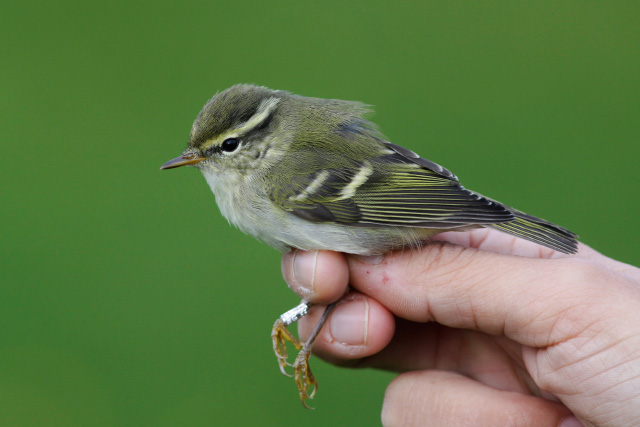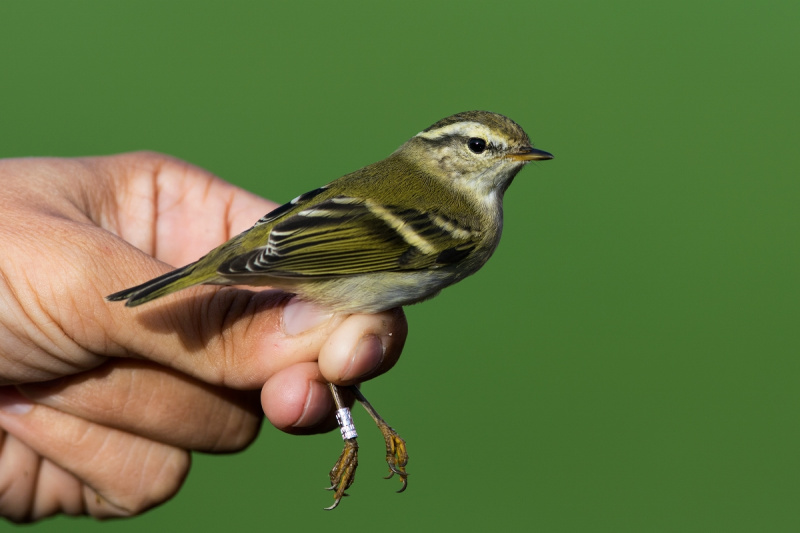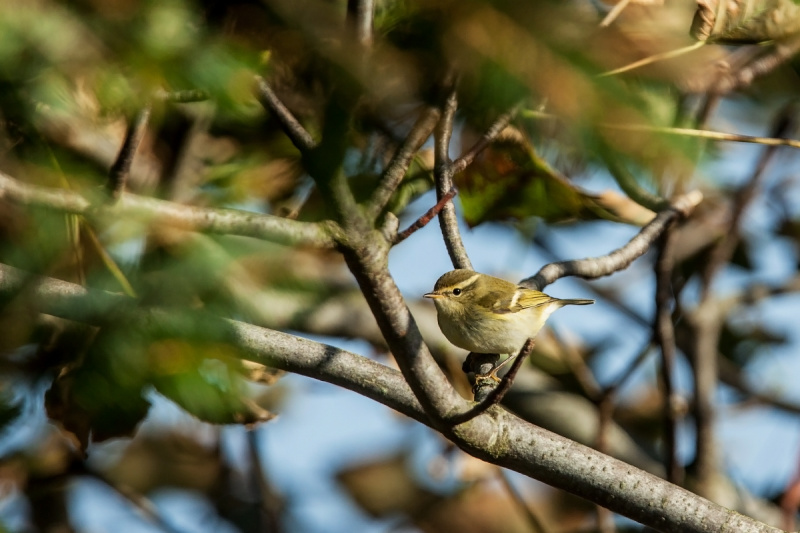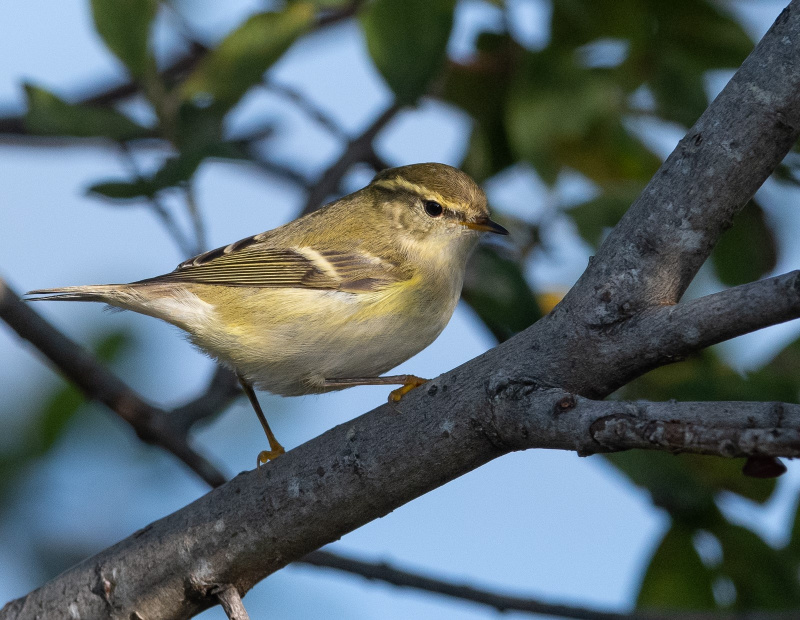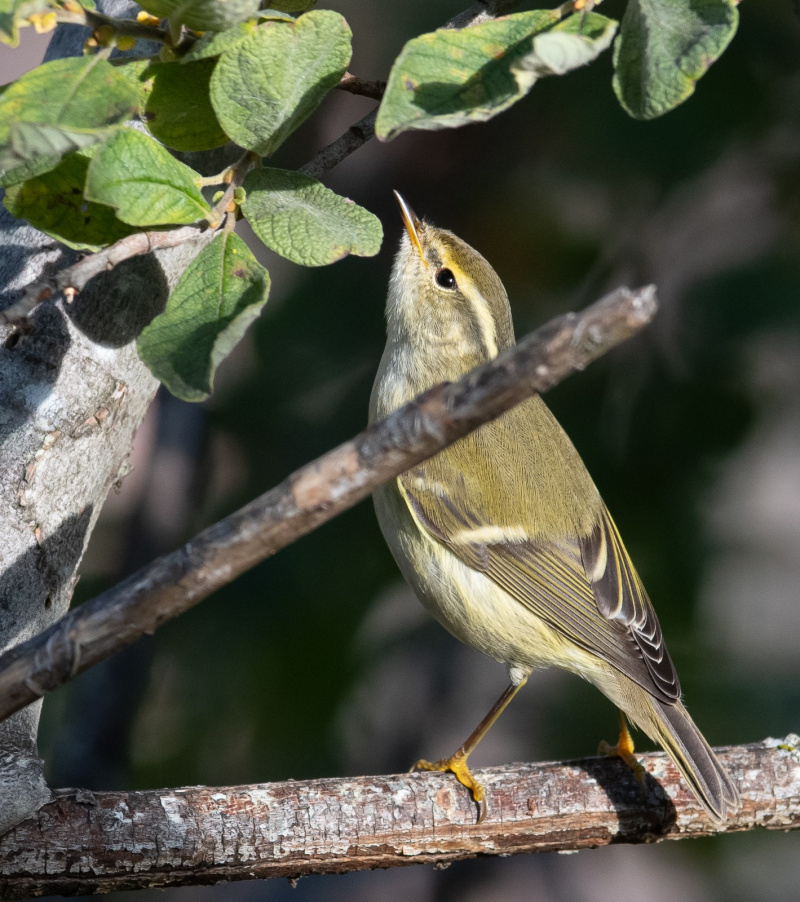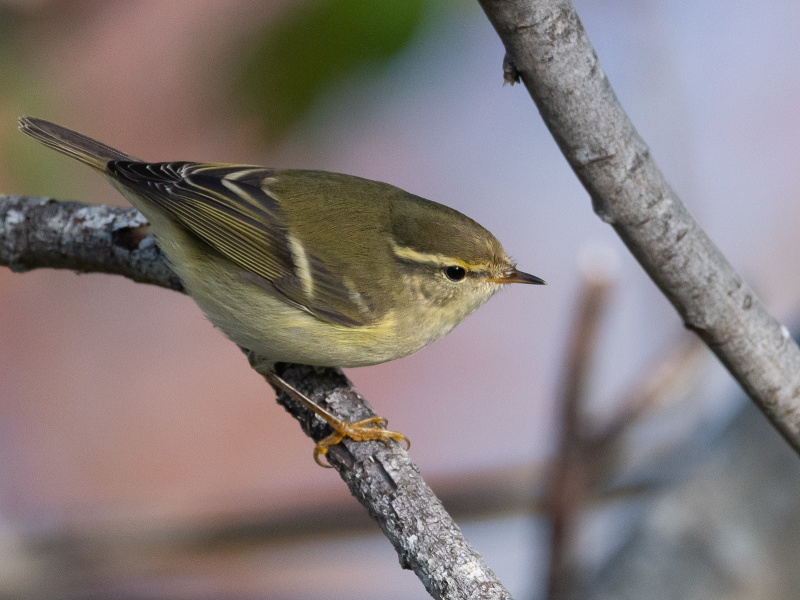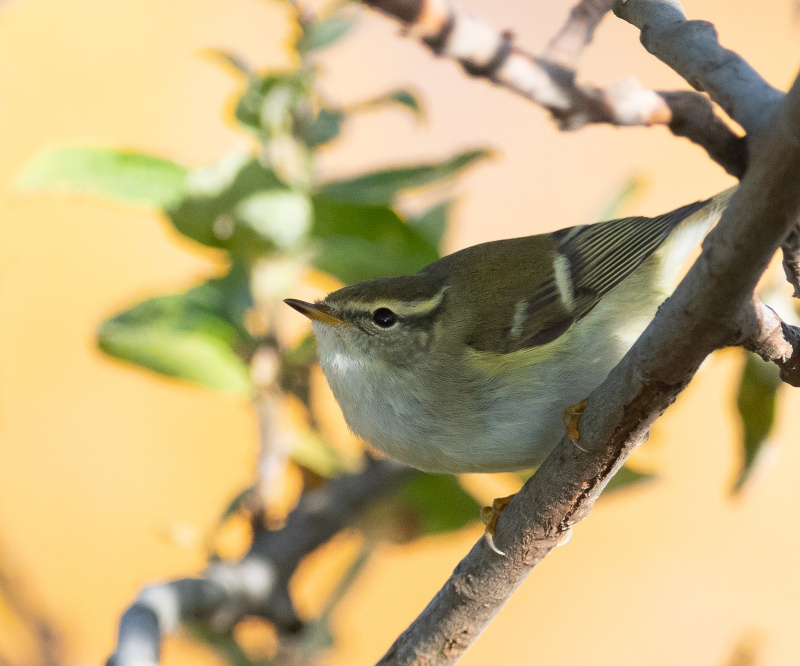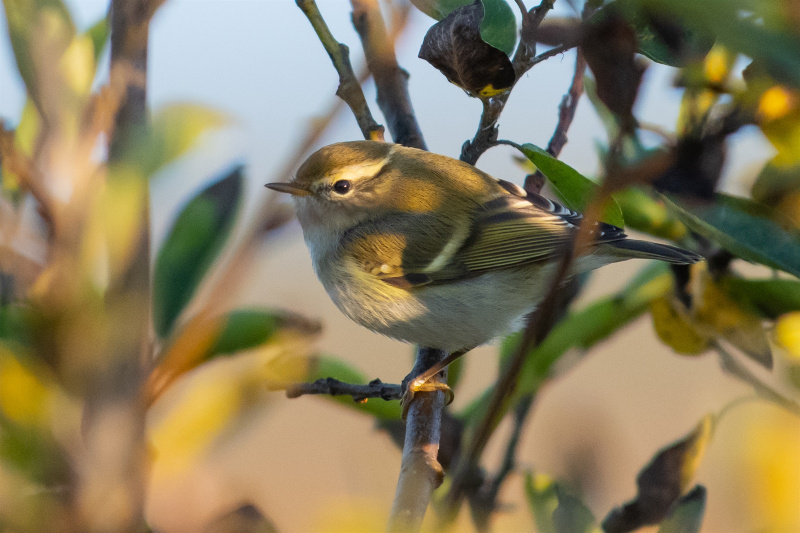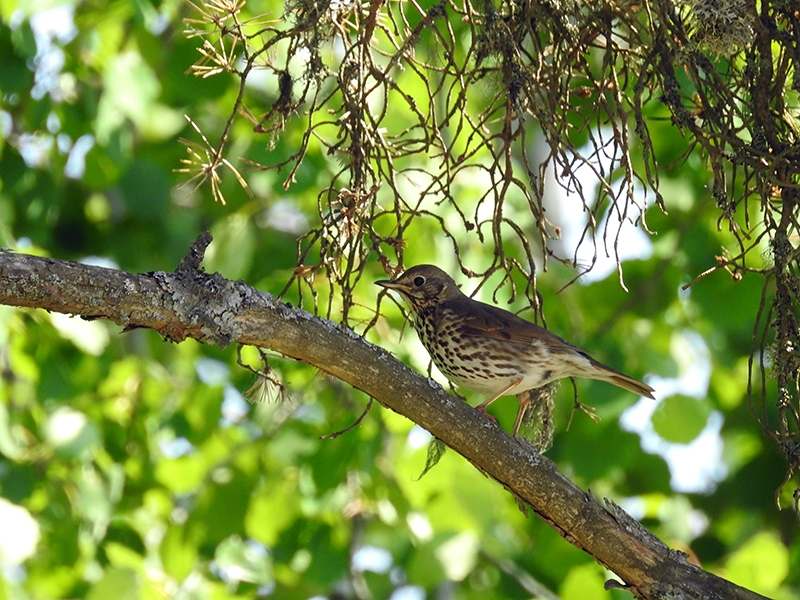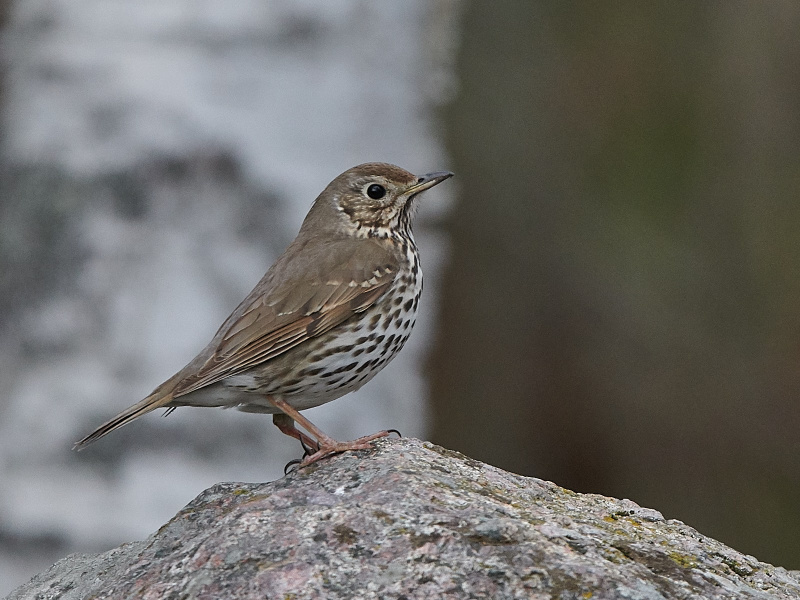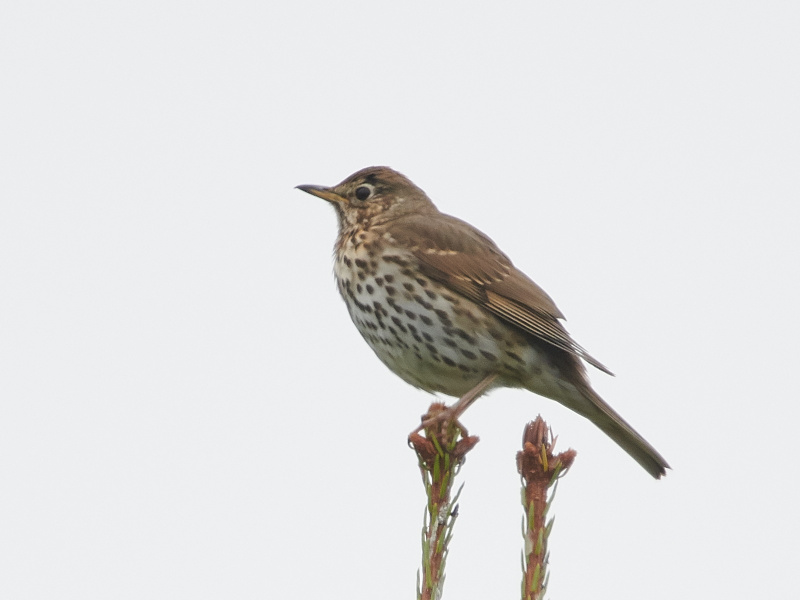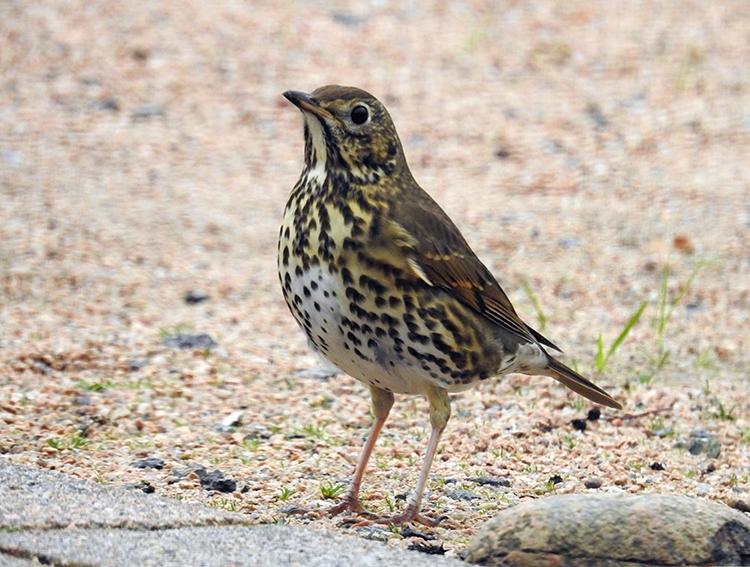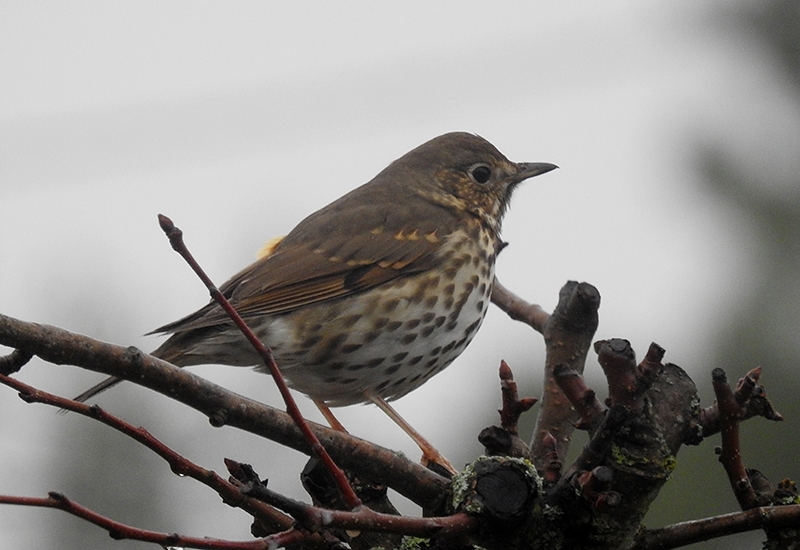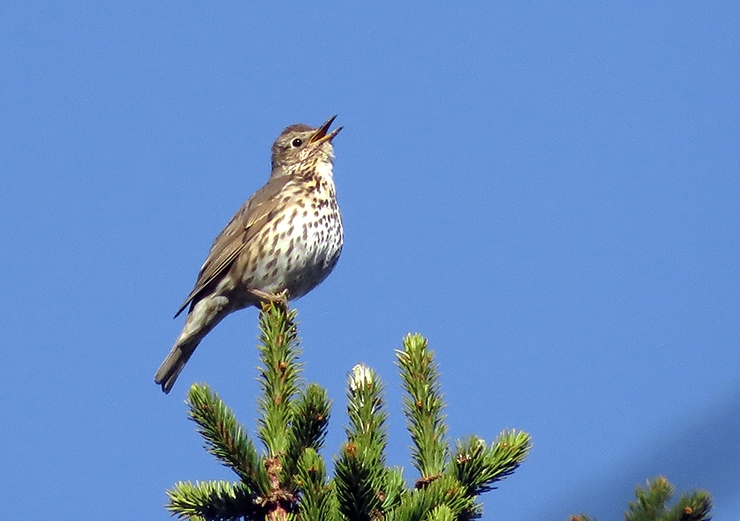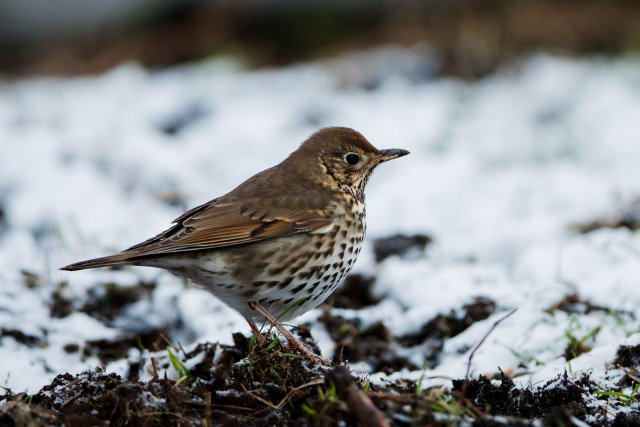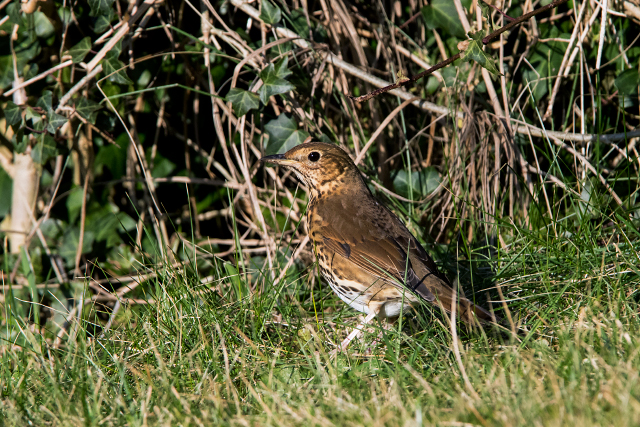Yellow-browed Warbler (Phylloscopus inornatus)
Song Thrush (Turdus philomelos)
Small and secretive warbler, usually discovered by the contact call. Broad, yellow/whitish wing-bars framed in black, and dark tertials with pale fringes gives the species a contrasting plumage. Long and strong yellow supercilium (lacking the orange base of Pallas' Leaf Warbler). No central crown-stripe. Slightly smaller than a Chiffchaff, with smaller bill and shorter tail. Rump same colour as back (as opposed to Pallas'), and overall greener and more strikingly coloured than Hume's Leaf Warbler (but beware individual variation).
Sound:Contact call and song both distinct. Contact call a very high-pitched "zeeoooee", with pitch rapidly dropping in the middle, and ending on a quickly rising note. Song an ornamented, drawn out, slow-motion version of the contact call, with similar timbre and pitch.
Contact call:
Distribution:
Xeno-canto: map
Ecology:Birdlife ecology
Links:
Observation.org Latest observations
Image search Flickr NB! May give other species
CCCC-photo:Langham Birder, Licence,Link.
Sounds:Recorded by Jelmer Poelstra,http://www.xeno-canto.org ,CC license
A medium sized thrush with evenly brown to olive-brown upperparts. Underparts boldly covered with arrow-shaped spots. Chest with buff tones. Faint face patterns and buff underwing coverts distinguishes it from all other thrushes in the region. Lacks the white cheek-spot of Mistle Thrush, and the colour of the back of the head is not paler than the back. Sexes alike. Juveniles with buff-spotted upperparts. Quite short-tailed and compact, with rounded wings. Jerky, and not very undulated, flight pattern.
Sound:Very melodious, varied and a master imitator. Still easily distinguished by its tendency to repeat introductory motives two or more times, and its many high pitched themes. Each phrase is loud and penetrating and the tempo deliberate. Most heard (but easily overlooked) contact call is a dry and very short "zip", sometimes given as a two syllable call "zip-ip".
Song:
Distribution:
Xeno-canto: map
Ecology:Birdlife ecology
Links:
Observation.org Latest observations
Image search Flickr NB! May give other species
CC
 English
English Albanian
Albanian
 Armenian
Armenian
 Bulgarian
Bulgarian
 Catalan
Catalan
 Croatian
Croatian
 Czech
Czech
 Danish
Danish
 Dutch
Dutch
 Finnish
Finnish
 French
French
 Georgian
Georgian
 German
German
 Greek
Greek
 Hungarian
Hungarian
 Italian
Italian
 Latvian
Latvian
 Lithuanian
Lithuanian
 Macedonian
Macedonian
 Norwegian
Norwegian
 Polish
Polish
 Portuguese
Portuguese
 Romanian
Romanian
 Russian
Russian
 Sami : Lule sami
Sami : Lule sami
 Sami : North sami
Sami : North sami
 Sami : South sami
Sami : South sami
 Scientific names
Scientific names
 Serbian
Serbian
 Spanish
Spanish
 Swedish
Swedish
 Ukrainian
Ukrainian


